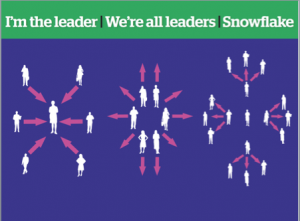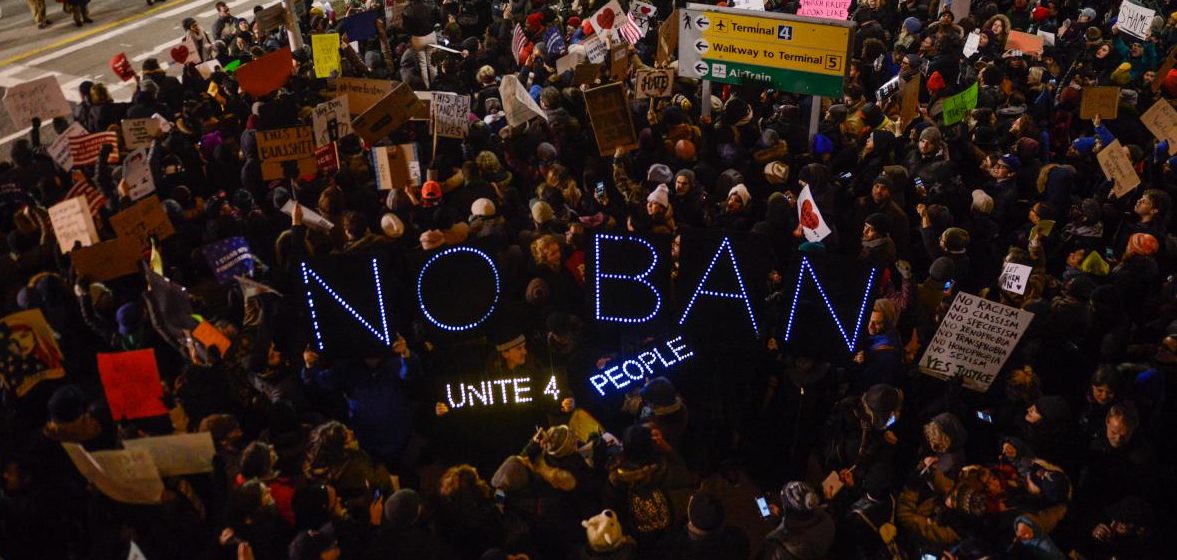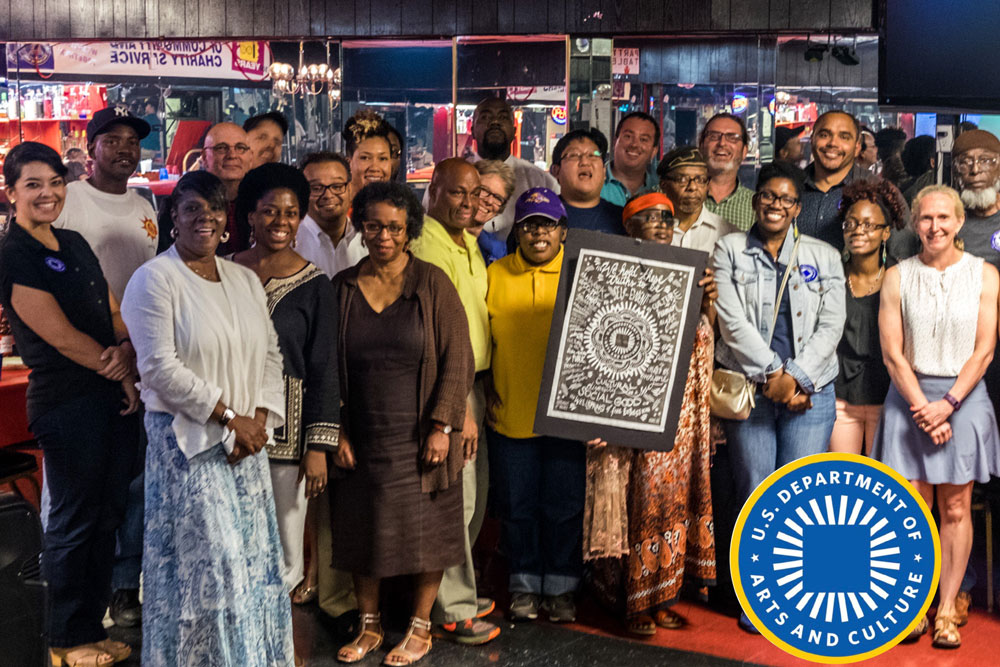Ask any community organizer what their job is really about, and they will tell you that more important than protesting, or changing government policies, or even improving local conditions is the work of leadership development. Organizers work closely with local community members to develop public speaking and advocacy skills, increase confidence, and build relationships, among other capacities. A more “leader-full” community is a stronger community.

In some progressive circles, the word “leadership” is almost a curse. Reacting against the well-known dangers of hierarchy, groups like Occupy Wall Street seek to be “leaderless.” But the vision of leadership offered by community organizing is not of the “great man” variety. Instead, it is a kind of leadership that long-time organizer and Harvard professor Marshall Ganz refers to as a “snowflake” — a web of interdependent leaders who support others in becoming leaders. For Ganz, the difference between this kind of leadership, and the more oppressive kind, is the difference between leadership as a position, and leadership as a practice:
Community organizing develops leaders who can mobilize people to confront and build political power. But we also need cultural leaders who can accept the responsibility for enabling others to think differently, to dream bigger, to develop new identities. Cultural leaders who can move us towards new aesthetics and new stories about ourselves. Developing such leaders should be the job of cultural organizing.
The term “cultural leader” is often used to refer to artists and other creative individuals whose work has had wide influence. This kind of leadership, based in individual expression, can be very powerful. Bob Dylan was this kind of cultural leader, and his work inspired many in the social movements of the 1960’s and 70’s. But in many ways this model reflects the “great man” model of leadership that has been so thoroughly critiqued in the world of social movements.
The kind of cultural leader I am talking about here is of a different sort, and might better be described as a community cultural leader. This kind of leader is rooted in community relationships, and their task is not only to produce work with meaning, but to enable others to take part and develop their own creative voices. Their task is to challenge others to work collaboratively towards new ideas, identities, and aesthetics. Dr. Toby Jenkins, who teaches a course on cultural leadership, defines it this way:
Cultural leadership is creative leadership. It utilizes the arts and various other assessable forms of creative public scholarship and open community spaces to educate and raise awareness. Cultural leaders are rooted in the community and committed to social justice. They are raw leaders with thick skin, unflinching determination, and a love for people that allows them to take the blows that may come even from the communities that they seek to help. They are social change agents and social servants. They understand that a leader is first a servant.
This vision of cultural leadership can move us away from a celebration of celebrity, and towards a more grassroots strategy for cultural change.


Fellow traveler! Great post. I’ve been thinking about cultural leadership in my city… Specifically ways to galvanize folks to use CL as a framework (thoughts?).I also wrote about this not too long ago, also citing Dr. Toby Jenkins (who served as a mentor during undergrad). http://artinpraxis.org/2013/
HI Jess,
Love the blog, and great to read your thoughts on cultural leadership. Would you mind if I re-posted it here? And very cool about working with Dr. Jenkins, I’d love to connect with her at some point and hear more about the class she’s been developing.
I do think CL could be a powerful concept for organizing, if we can pull it away from celebrity worship. I think of this a lot in terms of hip-hop activism — which too often is just big stars using their names to get out the vote. While there’s nothing wrong with that, it’s not going to strengthen our communities in the long run or help develop other cultural leaders.
Sounds like you’re doing excellent work in DC.